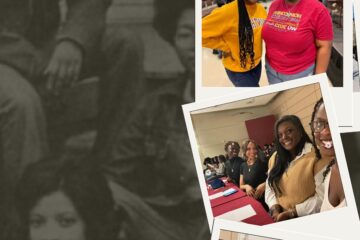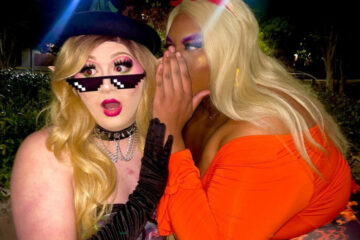Thirty years ago, a program was established that has now become an integral part of the academic offerings at Winthrop University. The African-American Studies minor encompasses both the Black experience in the United States and the African diaspora across space and time
The program was initially proposed to the former dean of the college of arts and sciences by Dorothy Perry Thompson who, at the time, was a professor of English at Winthrop University.
The dean appointed nine faculty members, including Thompson, who served as chair, to serve on the African-American Studies Minor Committee. This committee was established to explore the feasibility of establishing an African American Studies minor.
In 1993, the African-American Studies minor was officially established.
In light of the program’s 30th anniversary, we sat down with Adolphus G. Belk, professor of political science and former director of the African-American studies minor, to discuss the minor and his experience within the program.
“I have been a member of the African American Studies advisory committee since I started working. So I’m a member of that advisory committee. And for, gosh, about 10 years, I was the program director,” Belk said.
He continued saying that “I’ve been a member of the committee this entire time. The courses that I’ve taught in the program include introduction to African American Studies, which is the gateway course with the discipline. I’ve taught African American politics and policy, race and ethnic politics. And just last fall, a special topics class on hip hop and politics that I hope becomes a regular feature of the curriculum.”
Although Belk teaches a variety of classes within the discipline, he says his favorite is always changing.
“My favorite class is the one I happen to be teaching at that moment. For the opportunity it offers me to introduce people to interesting ideas and concepts, to debate those ideas and concepts, to talk about important policy issues or to look back to the past to understand the impact that the past has on this particular moment in time.”
Other prominent members of the minor include Nathaniel Frederick, associate professor of mass communication, and current chair of the African-American Studies committee and assistant history professor, Jennifer Dixon-McKnight.
Each professor brings a different intellectual background and discipline to the program.
“We belong to our respective fields, some people are trained in African American Studies, and they get master’s degrees and doctorate degrees in the subjects,” Belk said.
He also stressed that even though some faculty members have a strong background in African-American studies, many others have studied in fields that would be considered closely related to African-American studies that allow them to study some aspects of the Black experience.
“And it’s that part of their work that offers a connection to this intellectual endeavor we call African American studies. So you have people who are trained as political scientists, historians, mass communication scholars, educators, that are a part of African American Studies. The discipline itself is interdisciplinary by nature. So when I’m teaching intro to African American Studies, I’m less concerned with the discipline that provided the content that we’re learning from,” Belk said.
Belk also stresses the importance of studying and teaching this minor from an interdisciplinary perspective.
“But what I’m thinking about is what goes into the class. What are the things that I believe students need to learn? And what are some of the best historical pieces of scholarship that illuminate those areas? Or what are some of the newer contributions that shed a different light on these often discussed subjects, right. So that’s how I’m approaching the work,” he said.
Belk continued, saying that he’s “always been of an interdisciplinary mindset when it comes to research and teaching.”
He also reflected on the difficulties that come with teaching a minor that has its intro course in high demand
“So I’m gonna say there’s a critical mass of people out here interested in these things, right. And if we’re going to call ourselves a university, and we’re going to educate people on the world, Africa is a part of the world, the black Caribbean is part of the world. And there are opportunities for study through humanities and social science courses or science courses. There should be opportunities for study abroad, to be able to go to these places and do work, right? But that requires resources. And that can be tough, because there are multiple and competing demands on scarce resources around this place.”
In terms of the future of the minor, Belk is hopeful that progress will be made on adding more classes to the minor to fulfill the increased demand.
“I would like to see African history enjoy a more privileged position in our curriculum. But to offer courses in these areas, you need faculty members, and to get faculty members you have to demonstrate demand. But it’s hard to demonstrate demand when you haven’t been able to run the course in the first place or you haven’t been able to run it for a really long time. So we have some holes. But to fill those holes, it’s going to take a lot of work.”



